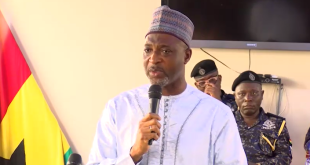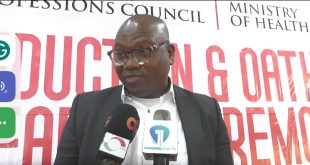The talk about illegal gold mining locally referred to as galamsey has gone on for years with the pollution of water bodies and destruction of environment always taking the centre stage of discussion.
However, there appears to be a serious component of the menace that also has a rippling effect on the country but has been left out of the conversation.
This has to do with the effect of illegal mining on education.
The International Labour Organisation (ILO) has indicated that the prevalence of children in mining is growing. Thousands of children are into gold mining activities in areas within the Western, Central and Ashanti regions and this according to the organization is “a serious violation of children’s rights that puts children’s health and safety at risk and deprives them of an education”.
More worrying is the worst-case scenario where some of the pupils lose their lives while mining.
In this report, Ibrahim Abubakar explores how children in mining communities are prioritizing galamsey at the expense of their education.
Several interventions have and are being rolled out by governments to increase school enrollment, attendance and academic performance in all parts of the country.
This is in line with efforts to meet the Sustainable Development Goal 4 target of ensuring access to quality universal education for all by 2030.
The 1992 Constitution gives further push to the provision of education as a basic right for all Ghanaians. Article 25(a) states “All persons shall have the right to equal educational opportunities and facilities and with a view to achieving the full realization of that right – basic education shall be free, compulsory and available to all”.
However, a great deal of Ghana’s success in growing enrolment is being thwarted by increasing student drop-out rates in several mining communities.
Scores of children are abandoning the classroom to do galamsey in mining areas like Peminase in the Juaben municipality of Ashanti region.
The small mining town with a population of about 800 is struggling to deal with the negative impact of the illegal activity on education.
Opoku Clement Sebastian is the headteacher of Peminase M/A JHS says because of the galamsey activities in the area the enrollment has been declined abysmally.
“Peminase M/A JHS is the only school within the community in which the expected enrollment should be around 120 pupils but unfortunately the current enrollment is 89 ,every year the enrollment decline due the involvement of children in ( galamsey) illegal mining activities”,Opoku Clement revealed.
He also highlighted the raised of teenage pregnancies among some of the pupils which curtailed their continuity in school.
The headteacher of Peminase JHS said at least 5 students of the school have fell and died in a galamsey pit over the past 5 years.
These children engage in mining for several reasons but the common is owing to financial constraints of their parents.
At the mining site, six school-age going children between the ages of 13 and 17 are here to work instead of being in the classroom.
“We are three friends ,we depend on the galamsey activities to support our education and our families because we are the breadwinners for our families now. But the government says ,he is placing ban on the activities ,how can we support ourselves without galamsey”,children of Peminase stated.
The increase in these illegal mining activities has brought about retrogression in education at Peminase.
To reverse this disturbing trend, the traditional authority and unit committee of the community have proffered some sanctions to parents who look on for their children to do galamsey at the expense of their education.
The Akwamuhene of Peminase Nana Kofi Owusu on efforts to stop child galamsey by setting up a community task-force to prevent children from involving in galamsey.
“Any child that will be apprehended, their parents will pay a fund of GHC 1500.00 and that galamsey site will also pay a fund of GHC 2000.00. I want all my children to be in school”,Nana Kofi Owusu disclosed.
The district and regional education directorates have admitted to this challenge but yet to speak to us on camera.
Ghana is signatory to the international convention of the rights of the child that declared education a right of every child of school age.
To give meaning to the access and participation component of the Free Compulsory Universal Basic Education programme, there is the need for all stakeholders in the education sector to join hands and ensure children of school age remain in the classroom.
By Ibrahim Abubakar/uniquenewsgh.com
END
 Uniquenewsgh.com News, Politics, African News Updates & More
Uniquenewsgh.com News, Politics, African News Updates & More



